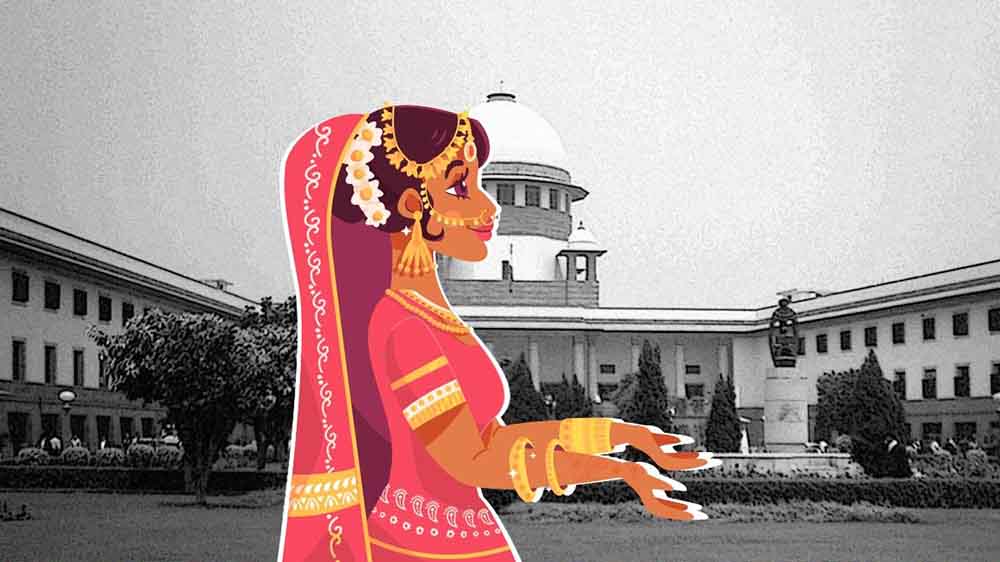In India, the path to gender equality has been a protracted and a difficult one, especially when it comes to property rights and ownership. Women in India have historically experienced severe prejudice. However, the situation of women's property rights has steadily improved over time due to societal shifts and legislative reforms.
The first important statute to address women's inheritance rights or property and inheritance rights in gender justice was the Hindu Succession Act of 1956, which is considered a watershed in the legal landscape. It gave women the same rights as males to inherit their parents’ property. Their rights were somewhat restricted though, as daughters were not designated coparceners (joint heirs) in joint family property and agricultural land was not included.
Criminal Defence Lawyer Rhythm Aggarwal shares that the Indian Constitution has laid a strong foundation for gender equality through Article 14 which ensures equality before the law and Article 15 which prohibits discrimination based on sex. Additionally, Article 15 clause 3 provides for the state to make special provisions for women so that progressive legislation can secure their rights over property.
Through landmark rulings, the Supreme Court of India has significantly advanced women's property rights. It has continuously upheld equality, reaffirming that a person's gender shouldn't influence their ability to inherit property. Women's rights have been further cemented by recent decisions that guarantee gender-neutral interpretation and application of the law.
Rhythm emphasises that property is more than just a land or a home; it represents security, independence and dignity, especially for women across different stages of life.

For girls below 18 years: Property inherited from relatives is held in the girl’s name but managed by a guardian until they become adults. At 18, they have complete legal rights to manage, use or dispose of the property.
For unmarried women: They can enjoy equal inheritance rights as male heirs under the Hindu Succession (Amendment) Act of 2005, especially via Section 6 that provides daughters equal coparcenary rights (joint heirship) in family property. Unmarried women can also obtain property independently and execute legal contracts under the Indian Contract Act of 1872.

For married women: Marriage does not deprive a woman of her right to property. A married woman owns all the property she inherits or acquires outright. Her possessions are hers and cannot be taken by her husband or in-laws. In case her husband dies, she is a Class I legal heir under the Hindu Succession Act and has equal rights with her children and her husband's mother to inherit his property.

For widowed women: A widow still retains full authority over her personal and ancestral property. In case she is old and neglected, the Maintenance and Welfare of Parents and Senior Citizens Act of 2007 gives her power to recover maintenance from her children or legal heirs.

Women’s Fundamental Rights To Property In India
A Woman’s Property Is Her Own
A woman is legally the owner of any property she buys, whether she does so before or after marriage. Her ownership is unaffected by her marital status. According to Section 14 of the Hindu Succession Act, a wife's property becomes her exclusive property even if her husband purchases it in her name after marriage. She is then free to sell, rent, or mortgage it as she sees fit.
Right To Live In The Marital Residence
Every married woman, regardless of whether she owns or rents, has the right to live in the shared household under the Protection of Women from Domestic Violence Act, 2005 (PWDVA). This law protects women who are victims of domestic violence and guarantees that they won't be forcibly removed from their homes.

Possession Of The Spouse's Property
Following her husband's death, a woman is entitled to all of his assets, whether they are immovable or moveable. Depending on her religion, different succession laws offer this right. In the event of spousal loss, she will inherit alongside other legitimate heirs ensuring financial security.
Cannot Be Held Accountable For Husband’s Debts
A woman's personal property is shielded from being used to pay off her husband's debts under the Married Women's Property Act (MWP). This law protects her financial and material assets against demands resulting from her spouse's debts.

Equal Rights To Ancestral Property
Daughters are entitled to inherit ancestral property on an equal basis with sons under the Hindu Succession (Amendment) Act, 2005. Sikhs, Jains, Buddhists, and Hindus are all subject to this legislation. Under their respective laws, women of other religions are likewise entitled to inherit.
Despite these developments, there are still many challenges to overcome in terms of legal execution and societal acceptance. The complete exercise of women's property rights is frequently impeded by ingrained patriarchal traditions. Furthermore, things are made more difficult by women's ignorance of their rights and the intricate legal processes involved. In India, the development of women's property rights shows a slow but determined move towards gender equality. Although legal reforms have been pivotal, societal transformation is just as crucial to the full realisation of these rights.
Image source: Livemint, Cloudfront, Indiaspend